More money is spent on art in Basel than anywhere else in Europe — and this summer there is more of it on display than ever before.
The church bells chime at noon on Munsterplatz and Margrit Götz, in fur coat and tortoise-shell sunglasses, is trotting across the cobbled square listing how her hometown has been shaped by the most-lauded architects in the business.
“Renzo Piano, Mario Botta, Zaha Hadid, Frank Gehry, Herzog and de Meuron… they’re all here,” she says. “Every designer and architect has wanted a piece of Basel. But it’s easy to see why, don’t you agree?”
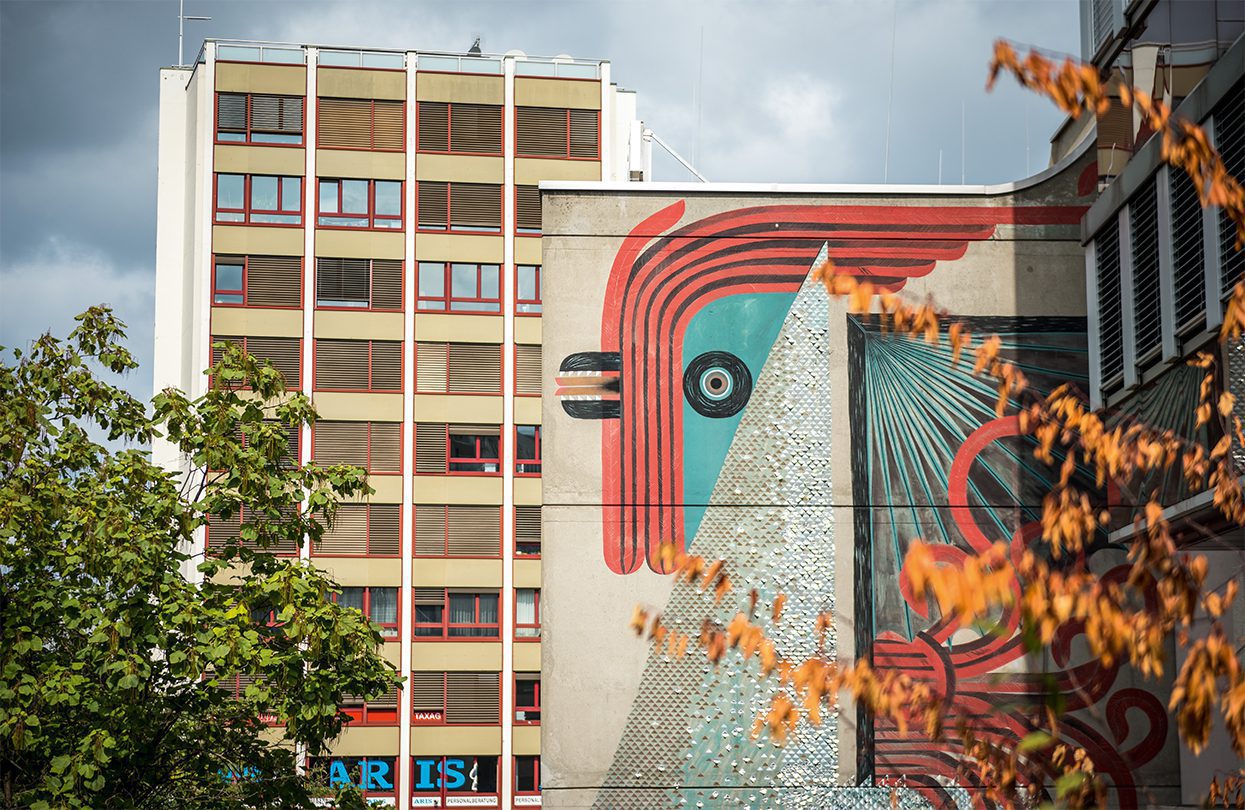
The urban art work of Tika by Switzerland Tourism – Andre Meier
With a little imagination, it’s not hard to take Götz at her word. Ever since the 5th-century, Basel has been a prize for conquerors and kings. Firstly, because of its prime location on the Upper Rhine river. But also for its rich artistic and cultural heritage. The Celts came first, followed by the Romans who stayed for 400 years, then the Franks and Maygars followed. Only then, did the Protestant Reformers arrive to sort everyone out (the crosier, the hefty bishop’s staff, remains the city’s emblem).
Times change, of course, but foreigners still do battle in Basel, if only in the name of art. Principally, they crowd the auction halls at the Herzog and de Meuron designed Messe Basel, Switzerland’s largest and most important exhibition centre, to buy and sell at the annual Art Basel. It’s now the world’s preeminent art fair, with satellites having popped up in Miami Beach and Hong Kong, and nearly 95,000 people flood in every year. This year’s edition takes place from 13 to 16 June, and with representation from 4,000 artists, around 290 galleries and 35 countries, it’s set to be its biggest yet.
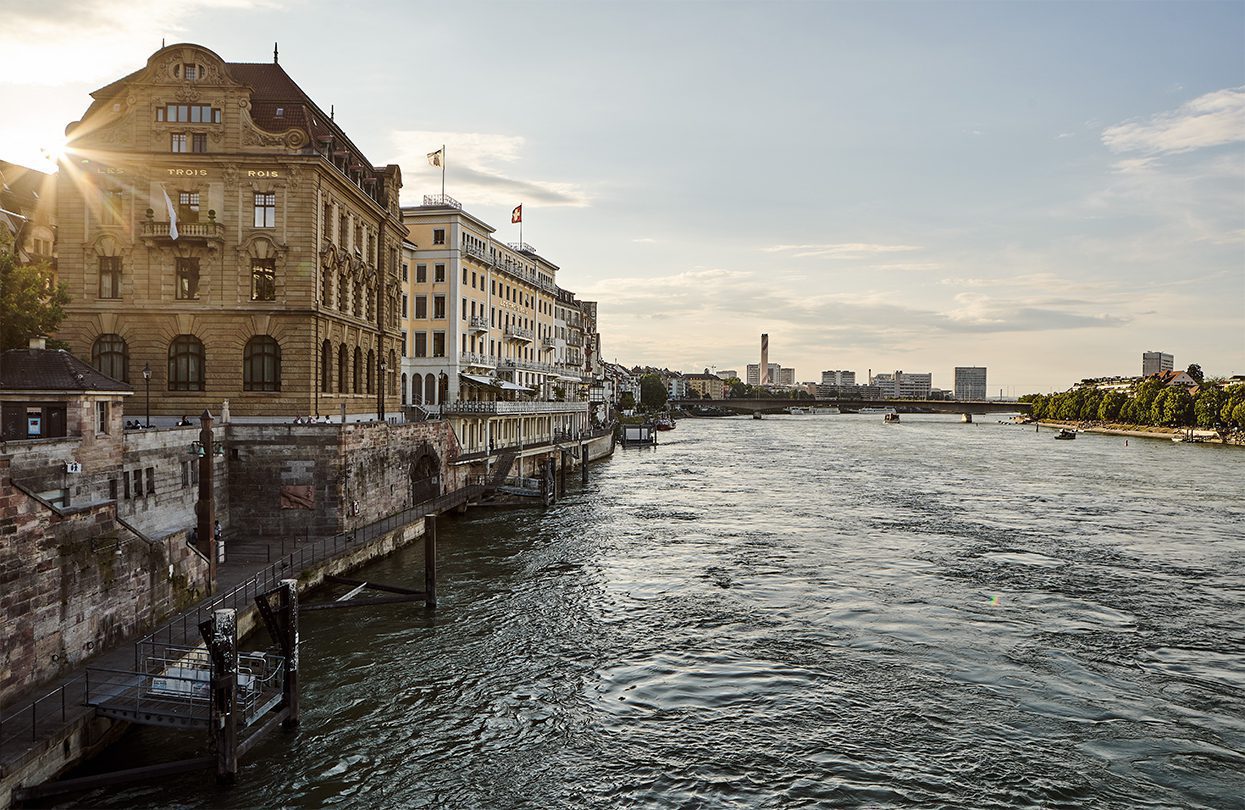
View from the middle Rhein bridge towards the Grand Hotel with the evening sun by Switzerland Tourism, Jean-Christoph Dupasquier
As a confluence of influences, Basel has more art, architecture and design on display than most visitors expect. Although I’ve known about its art treasures for decades, this is one of the first opportunities I’ve had to see it for myself. Indeed, few cities are so defined by their relationship with art and there are 37 museums in Basel — many of which are dedicated to the finer arts. It is an extraordinary number for a city its size. And even unremarkable public squares have monumental sculptures and whimsical fountains from the likes of American artist Richard Serra and Swiss sculptor and national treasure Jean Tinguely (more on him later).
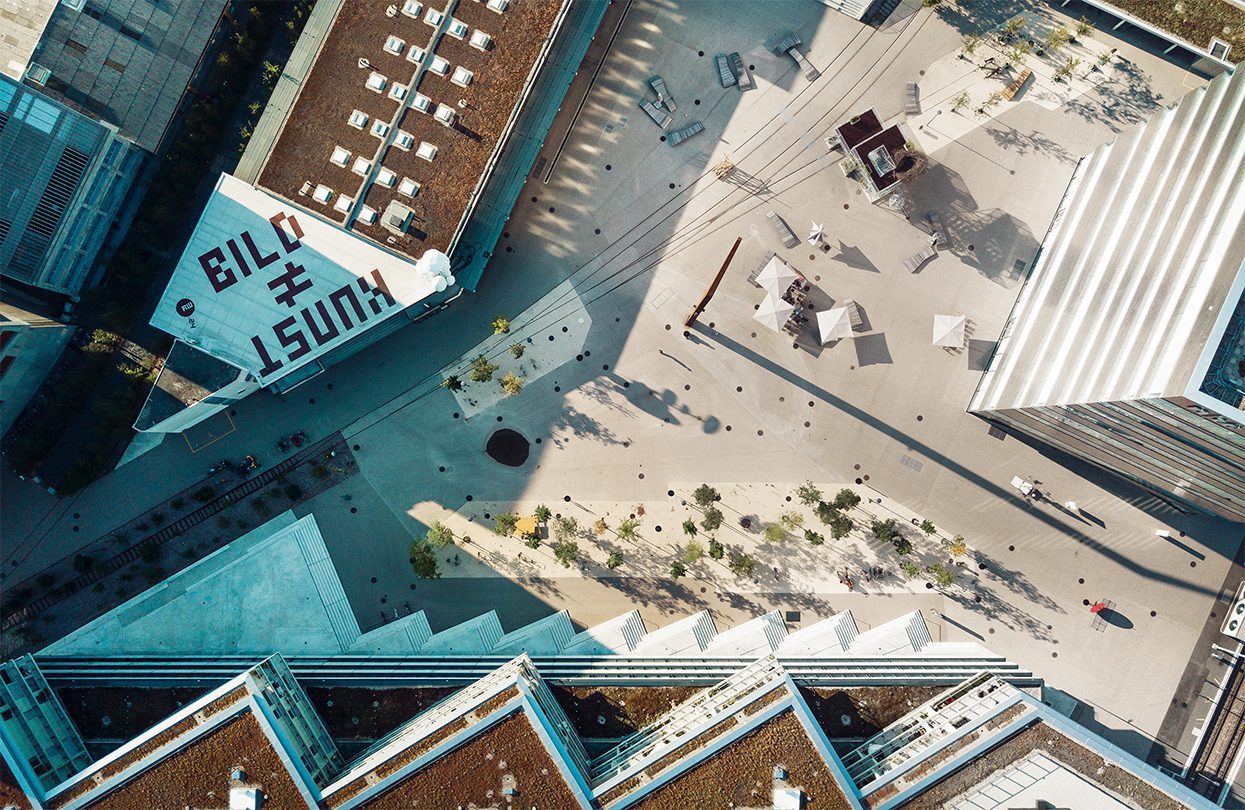
Drone shot in the Dreispitz with the courtyard of the College of Art and Design. by Switzerland Tourism – Stefan Tschumi
Across the Rhine, and in walking distance of Messe Basel, is the city’s must-see piece of art real estate. What the Louvre is to Paris, or The Met is to New York, the Kunstmuseum is to Basel. The world’s oldest public fine art gallery, it more than doubled in size three years ago, and smacks of enterprise. The extension by architects Christ & Gantenbein added an extra 2,740 sqm of galleries to the original and while Picasso, Mondrian, Cezanne, Monet, Rothko, Van Gogh, Warhol, Degas and Munch are all front and centre, I’m as equally intrigued by the lesser-known Swiss pieces. “The collection simply outgrew the size of the building,” Götz tells me, matter-of-factly, about the renovation. “It had become a serious matter of civic pride.”
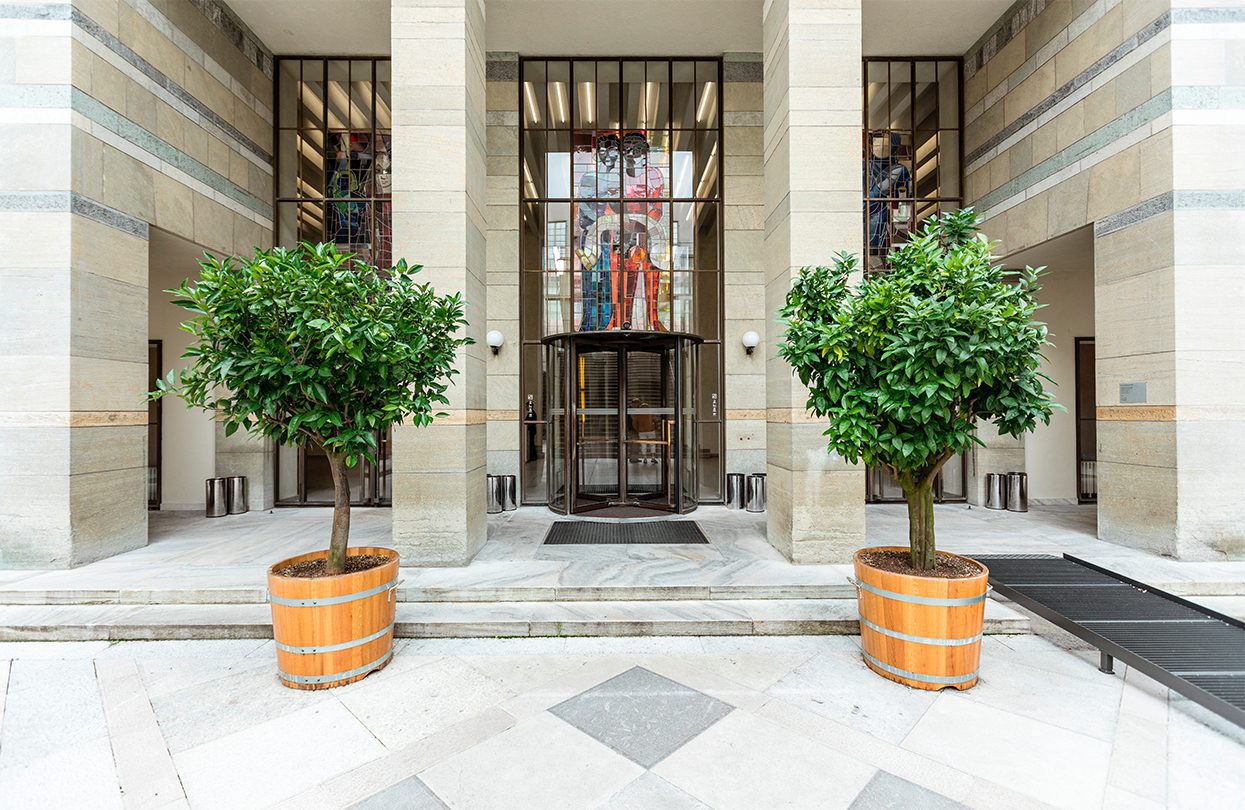
In the courtyard of the main building of the Kunstmuseum Basel by Switzerland Tourism, Lauschsicht
For an equally ambitious view of Basel, head to the outer suburb of Riehen. It’s done business here since 1997, when philanthropic art dealers Ernst Beyeler and Hilda Kunz commissioned Renzo Piano to design a museum housing their private collection. Inside, in an airy setting straight out of a 007 thriller, the series of light-filled pavilion-like galleries provide a highlights reel of the 21st century with masterpieces on rotation. This summer, the main galleries are devoted to the works of contemporary painter Rudolf Stingel (until 6 October).
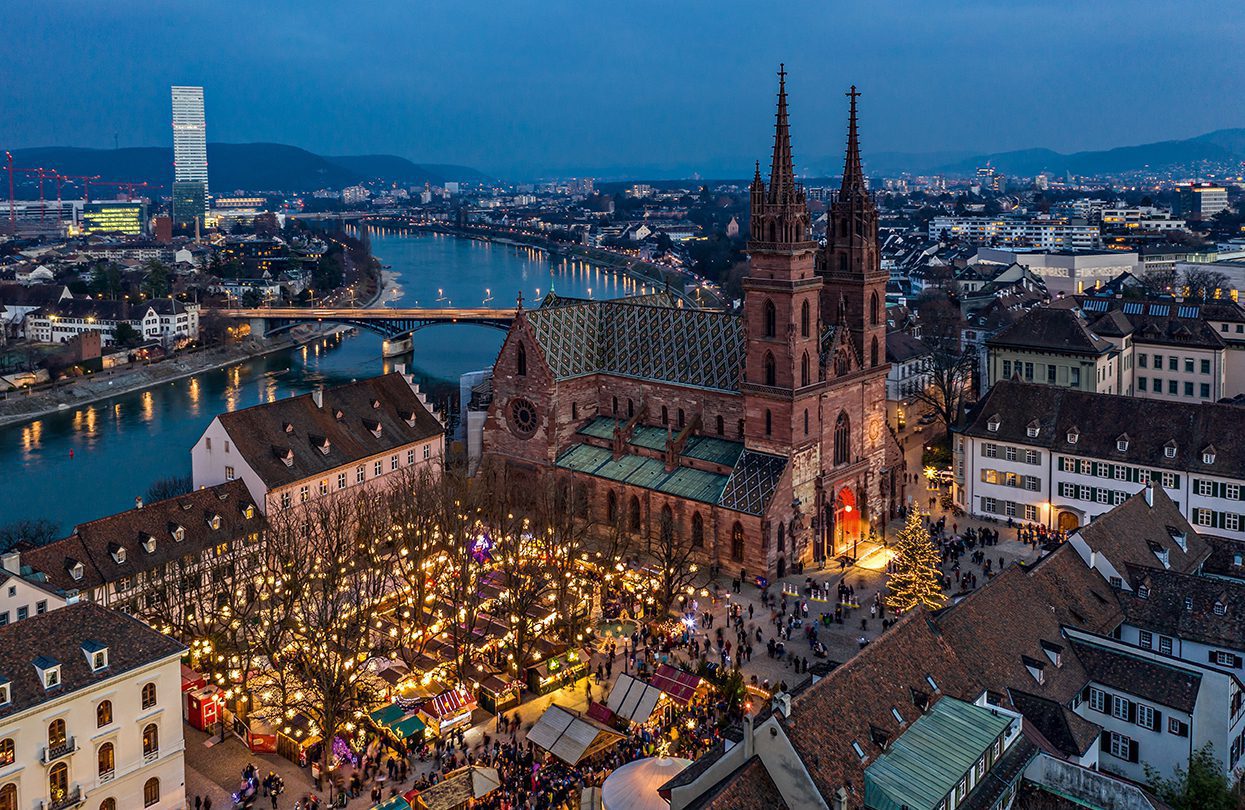
Aerial view of the Christmas market on the Muensterplatz in Basel, by Switzerland Tourism, Jan Geerk
The weight of modern art history on Basel’s shoulders can also be found at Museum Tinguely and this is where Götz leaves me to explore at my own pace. Every city needs someone to inspire the next generation and Basel’s is larger-than-life mechanical sculptor Jean Tinguely. Born in neighbouring Fribourg, he was a man of unwavering confidence (“as soon as I touch junk — it’s magic,” he once said) and his science-gone-mad kinetic reliefs, petrol-driven machines and musical skeletons have become symbols of the city.
This may only be a snapshot of the city’s artistic past, present and future, but Basel is so much more than a sum of its parts; Switzerland’s forgotten city represents the art world in microcosm. There is creativity here, vision and out-the-box thinking. And most important of all, there is personality.
Picasso, Monet, and Van Gogh never did visit Basel, but were they to do so today, it seems just the sort of place that would inspire them to even greater things.
For more information on Basel, visit basel.com. To help with trips and itineraries to Switzerland, go to myswitzerland.com ◼
Subscribe to the latest edition now by clicking here.
© This article was first published in June-July 2019 edition of World Travel Magazine.

